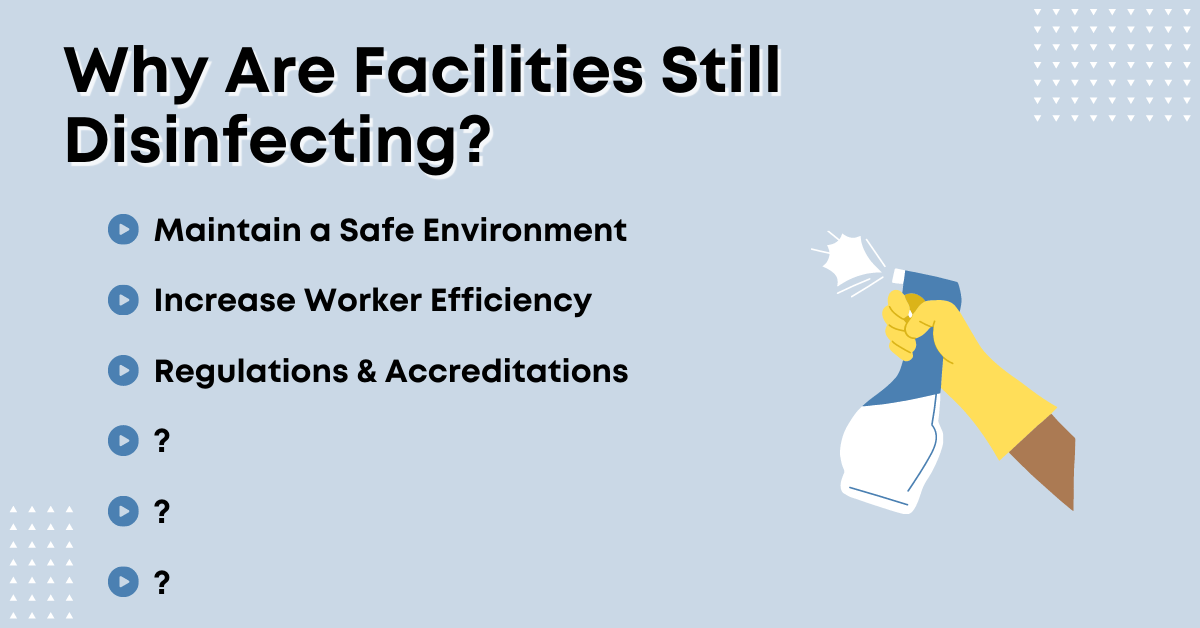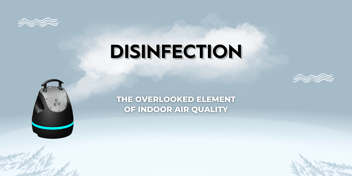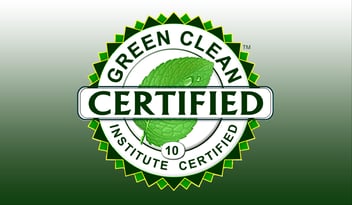
6 Reasons Why Facilities Are Still Disinfecting
I’m sick of getting sick. I’m sick of other people getting sick, too - friends, family, coworkers. I hoped that, after three years, the world would have more preventative measures in place. Everywhere I go - the gym, my favorite coffee shop, the local grocery store - I wonder what their cleaning procedures are but have no way of knowing, unless I ask the underpaid 18 year old behind the register who probably doesn’t know or care.
For me, not knowing = assuming the worst.
I have no reason to trust that these places are disinfecting or using air filtration/ventilation to reduce the number of germs in their facility. I just have to go in and hope for the best. While I was lucky for the first two years of the pandemic, my illness karma finally caught up to me in the past few months. Once again, I’m super aware of the germs that may or may not be around me.
Now that we’re a few months into 2023, business owners, facility managers, and more are wondering: should I still disinfect? Is it still relevant?
The answer is a resounding YES! Daily disinfecting should have been implemented long before COVID-19 came along, and it will still be relevant long after. Here are just a few reasons why many facilities are still disinfecting today.
1. Maintaining a Safe and Healthy Environment
Disinfecting is important for maintaining a safe and healthy environment. In addition to killing germs and viruses, disinfecting removes other harmful contaminants, including allergens and bacteria. This creates a safer and healthier environment for everyone who uses the facility.
For example, disinfecting can be particularly important in places such as ambulances, hospitals, and schools. In these environments, the risk of infection can be particularly high. Regular disinfecting is proven to reduce this risk and provide a safer environment for patients, students, and staff.
2. Preventing the Spread of Infectious Diseases
Disinfecting surfaces is one of the most effective ways to prevent the spread of infectious diseases. Germs and viruses can live on surfaces for several hours or even days, and people who touch contaminated surfaces can then become infected. Daily disinfecting can help to kill germs and viruses and reduce the risk of transmission. In addition, disinfectant fogging is one method that disinfects surfaces and the air, combatting airborne illnesses.
In the context of the COVID-19 pandemic, regular disinfecting has been particularly important. The virus that causes COVID-19 can survive on surfaces for several hours or even days, depending on the type of surface. Disinfecting high-touch surfaces such as doorknobs, light switches, and countertops has been shown to be effective in reducing the spread of the virus.
3. Reducing Workplace Absences and Increasing Worker Efficiency
A clean and hygienic environment reduces the likelihood of employees getting sick and needing to take time off work. This leads to a more productive workforce and less disruption to operations. When employees are absent due to illness, productivity can suffer, and it can be challenging to find replacement staff.
In addition, regular disinfection can improve indoor air quality. Poor indoor air quality is linked to lower cognitive function and productivity, and a study of over 3000 workers showed that 57% of all sick leave was attributable to poor ventilation (National Library of Medicine). Workplace conditions have a huge impact on workers’ efficiency.
4. Building Trust and Confidence
Regular disinfecting demonstrates a commitment to health and safety, which can help build trust and confidence with customers, employees, and other stakeholders. In today's world, where the risk of infectious diseases is always present, customers and employees want to feel confident that they are in a safe and healthy environment. By demonstrating a commitment to cleanliness and hygiene through daily disinfecting, facilities can help to build trust with their stakeholders.
A hotel that regularly disinfects its rooms and common areas can give guests confidence that their health and safety are a top priority, and a parent dropping off their child at a daycare center may feel more at ease if they know that the center is regularly disinfecting its facilities. Similarly, an employer that invests in disinfection shows their employees that they care about their health and well-being.
5. Regulations and Accreditations
Many industries have regulations that require facilities to maintain a certain level of cleanliness and hygiene. Failure to comply with these requirements can result in fines, legal action, and reputational damage. Daily disinfecting helps facilities meet these regulatory requirements and avoid any negative consequences.
In addition, accreditations such as the GBAC STAR Facility Accreditation increase credibility and prestige for a company. Thorough disinfection on a regular basis helps to achieve and maintain accreditations, especially when done with a GBAC STAR Registered product such as Breezy One.
6. Protecting Vulnerable Populations
Certain groups, such as the elderly, young children, and individuals with compromised immune systems, are more susceptible to illness and infection. Daily disinfecting can help protect these vulnerable populations by reducing the risk of transmission of infectious diseases.
For example, in nursing homes and other long-term care facilities, residents may have underlying health conditions that make them more vulnerable to infections. Daily disinfecting can help to protect these residents and provide a safer environment for them.
How Breezy Blue Makes Disinfection Easier
Daily disinfecting is beneficial in many ways, but what is the best method to ensure your facility is safe, hygienic, and trustworthy? While there are several methods for disinfecting, such as wiping surfaces with disinfectant solutions or using sprayers, one simple yet innovative solution is the use of automated disinfecting foggers.
Breezy Blue is a disinfecting minibot fogger that uses the latest technology to provide an efficient and effective way of disinfecting facilities. This innovative solution fogs disinfectant to cover even hard-to-reach areas, such as crevices and corners. The fog reaches all surfaces and hangs in the air to fight against airborne pathogens.
Breezy Blue is easy to use and can be operated by anyone. The minibot is portable and can be moved easily around a facility, making it a versatile solution for disinfecting. With the mobile controller, the minibots can be programmed to operate on a schedule. This saves time and takes the burden of disinfecting off of custodians and others in charge of cleanliness. In addition, Breezy Blue is EPA-approved and Green Clean Certified, using non-toxic disinfectants that are gentle on surfaces and safe for people and the environment.
In conclusion, daily disinfecting is crucial for several reasons, including maintaining a safe environment, improving worker efficiency, building trust, and more. Facilities that take measures to disinfect their environments are ensuring the health and safety of their employees, customers, and other stakeholders, and they are showing that they care about vulnerable populations. By incorporating Breezy Blue into their disinfecting routines, facilities can take a proactive approach to maintaining a clean and healthy environment.




